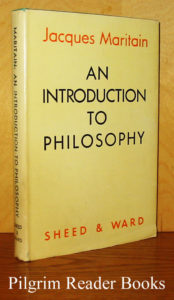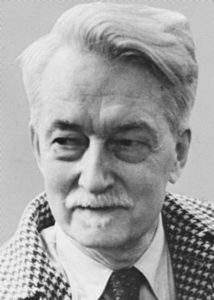 |
 |
Theology Judges the Conclusions of Philosophy
As the superior science, theology judges philosophy in the same sense that philosophy judges the sciences. It therefore exercises in respect of the latter a function of guidance or government, though a negative government, which consists in rejecting as false any philosophic affirmation which contradicts a theological truth. In this sense theology controls and exercises jurisdiction over the conclusions maintained by philosophers.
The premisses of philosophy, however, are independent of theology, being those primary truths which are self-evident to the understanding, whereas the premisses of theology are the truths revealed by God…[philosophy] develops its principles autonomously within its own spheres, though subject to the external control and negative regulation of theology.
——————————————-
Theology can turn the investigations of philosophy in one direction rather than in another, in which case it may be said to regulate philosophy positively by accident (per accidens). But absolutely speaking theology can regulate philosophy only negatively, as has been explained above. Positively it does not regulate it either directly, by furnishing its proofs (as faith for apologetics), or indirectly, by classifying its divisions (as philosophy itself classifies the sciences).
———————————————
As was shown above, philosophy is from the very nature of things obliged to employ as an instrument the evidence of the senses, and even, in a certain fashion, the conclusions of the special sciences. Theology considered in itself as a science subordinate to the knowledge of God and the blessed, is not in this way obliged to make use of philosophy, but is absolutely independent.
In practice, however, on account of the nature of its possessor, that is to say, on account of the weakness of the human understanding, which can reason about the things of God only by analogy with creatures, it cannot be developed without the assistance of philosophy. But the theologian does not stand in the same relation to philosophy as the philosopher to the sciences. We have seen above that the philosopher should employ the propositions or conclusions which he borrows from the sciences, not to establish his own conclusions (at any rate not conclusions for which metaphysical certainty is claimed), but merely to illustrate his principles, and therefore that the truth of a metaphysical system does not depend on the truth of the scientific material it employs. The theologian, on the contrary, makes use at every turn of philosophic propositions to prove his own conclusions. Therefore a system of theology could not possibly be true if the metaphysics which it employed were false. It is indeed an absolute necessity that the theologian should have at his disposal a true philosophy in conformity with the common sense of mankind.
Philosophy taken in itself normally precedes theology. Certain fundamental truths of the natural order are indeed what we may term the introduction to the faith (praeambula fidei). These truths, which are naturally known to all men by the light of common sense, are known and proved scientifically by philosophy. Theology, being the science of faith, presupposes the philosophical knowledge of these same truths.
Philosophy considered as the instrument of theology serves the latter, principally in three ways. In the first place theology employs philosophy to prove the truths which support the foundations of the faith in that department of theology which is termed apologetics, which shows, for example, how miracles prove the divine mission of the Church; secondarily to impart some notion of the mysteries of faith by the aid of analogies drawn from creatures — as for instance when theology uses the philosophic conception of verbum mentale, the mental word,’ to illustrate the dogma of the Trinity ; and finally to refute the adversaries of the faith — as when theology shows by means of the philosophic theory of quantity that the mystery of the Eucharist is in no way opposed to reason.
We must not forget that, if philosophy serves theology, it receives in return valuable assistance
from the latter.
In the first place, so far as it is of its nature subject to the external control and negative ruling of theology, it is protected from a host of errors ; and if its freedom to err is thus restricted, its freedom to attain truth is correspondingly safeguarded.
In the second place, in so far as it is the instrument of theology, it is led to define more precisely and with more subtle refinements important concepts and theories which, left to itself, it would be in danger of neglecting. For example, it was under the influence of theology that Thomism elaborated the theory of nature and personality, and perfected the theory of the habitus, habits, etc.
Conclusion III. — Theology, or the science of God so far as He has been made known to us by revelation, is superior to philosophy. Philosophy is subject to it, neither in its premisses nor in its method, but in its conclusions, over which theology exercises a control, thereby constituting itself a negative rule of philosophy.
Source: Jacques Maritain, An Introduction to Philosophy (Sheed & Ward, 1956), pp. 95-99.
Jacques Maritain is a preeminent 20th century Catholic philosopher .
Related Posts
Philosophy and Theology Reading 1/3: “Philosophy and Religion– Seeking and Finding Truth” by John E. Smith.